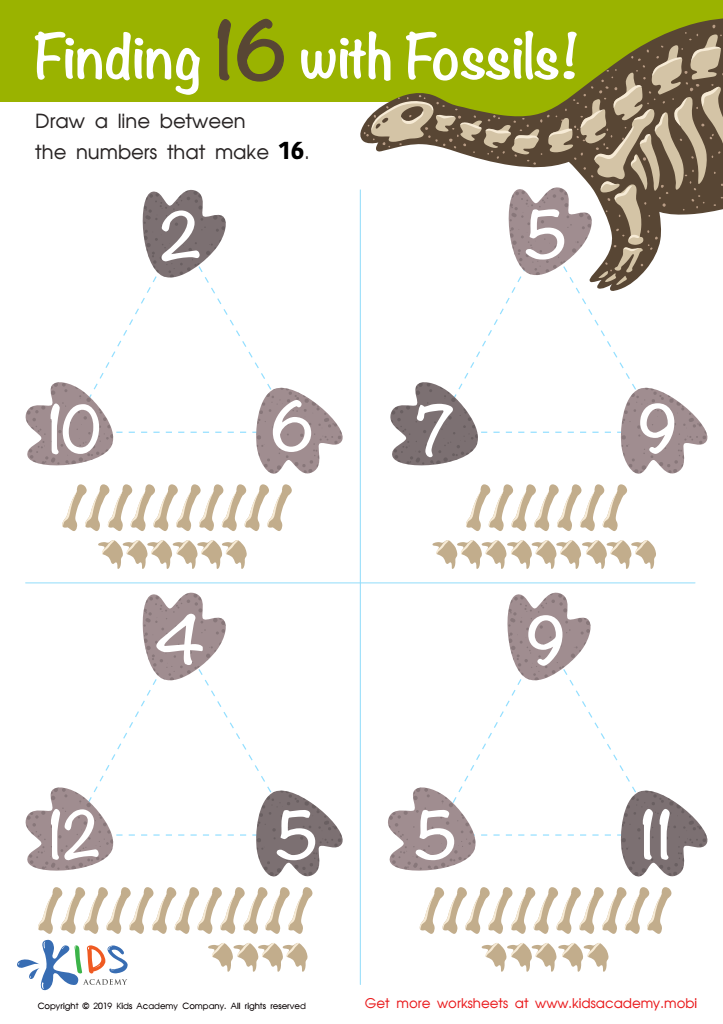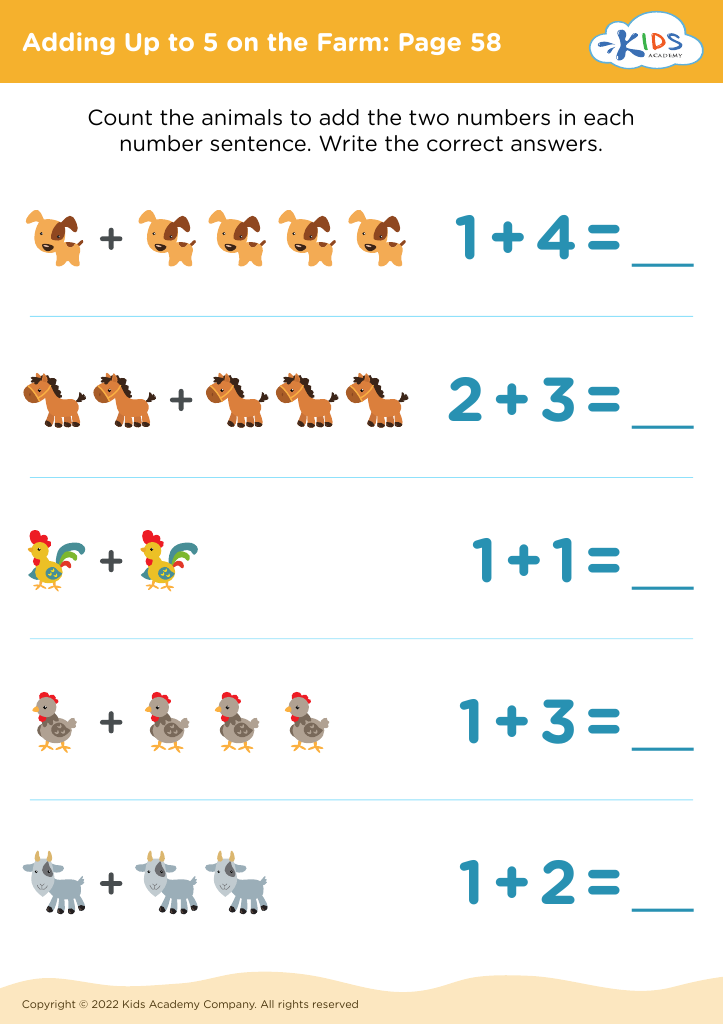Observation skills Math Worksheets for 5-Year-Olds
3 filtered results
-
From - To
Unlock the power of keen observation with our specially designed Observation Skills Math Worksheets for 5-Year-Olds. These worksheets from Kids Academy are tailored to enhance your child's attention to detail and critical thinking abilities. Engage young learners with fun, vibrant activities that encourage them to identify patterns, compare objects, and recognize differences. As they navigate through these tasks, they'll not only develop essential math skills but also improve their concentration and problem-solving abilities. Perfect for both classroom and home use, our worksheets guarantee an enjoyable learning experience that builds a solid foundation for future academic success.


The 5 Sense Scientist Worksheet


Finding 16 With Fossils Worksheet
Parents and teachers should understand the significance of developing observation skills in math for 5-year-olds, as these skills lay the foundation for future learning and cognition. Sharp observation allows young learners to notice patterns, recognize shapes, and understand spatial relationships, which are fundamental skills in math. By enhancing their ability to observe, children can better grasp concepts like counting, sorting, and classifying objects.
Observation skills help children make sense of their environment by comparing and contrasting different objects and scenarios. This fosters critical thinking and problem-solving abilities, essential not just in mathematics, but in everyday tasks and future academic success. For instance, recognizing that a triangle has three sides or identifying which group has more apples helps build a concrete understanding of mathematical concepts.
Moreover, honing observation skills enhances a child’s attention to detail, which is crucial for accuracy in math and other subjects. Activities like counting objects during a nature walk, identifying patterns in a sequence, or comparing quantities in everyday contexts turn learning into an engaging and hands-on experience.
Promoting early observation skills in math supports the development of a child’s confidence and curiosity. It prepares them for more complex mathematical tasks and nurtures a lifelong love for learning, emphasizing the importance of teacher and parent involvement in their early educational journey.

 Assign to My Students
Assign to My Students

















